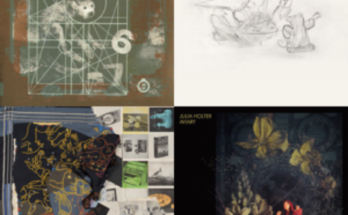The National could be pinned as lyrically and perhaps even musically simplistic. Their melodies and instrumentation sound at times all-too-similar to many other indie acts of this decade. At times, they can be cinematic and pretty like Explosions in the Sky, or at other moments sonically sparse and dreary like Interpol. There seems to be a theme of pieces here and there pulled from all sorts of influences. The songs are always well put together and exceedingly precise, but words like “groundbreaking” or “experimental” couldn’t possibly come to mind. Fittingly, the lyrics could be called straight up whiny and almost always dwell on the same themes of moving up the white collar work force and dealing with the spiritual suicide and loss of idealistic youth that comes with it.
But within this simplicity lies the secret to Boxer’s genius. As the album proves, you don’t write moving, art-pop anthems for every unsure, work-force wary twenty-something in America with overwrought musical craft or noise. The reason for The National’s whirlwind post-Boxer success and acclaim is that the music is so damn direct and easy to relate to. For every sleepless night, identity crisis, loss of faith or moment of hesitation that one may experience as they grow older, more professional, and less interesting, there seems to be a National lyric that conveys the sentiment perfectly, nailing it right on the head with shocking accuracy. Phrases like “I wanna start over, I wanna be winning, way out of sync from the beginning,” ring with a shameless transparency that, although leaving nothing to interpretation, can pull just as hard on the heartstrings as a tune off of The Arcade Fire’s Funeral.
What makes Boxer tragic is that most of the music is not in any way defiant or suggestive of a way out of the bleak, white collar future that the lyrics are so steeped in and worried about. The perspective of Matt Berninger’s poetry is often that of someone who is tired, but also accepting of the world around him, a world of needing to “underline everything,” and “throw money at each other and cry.” The band’s gorgeous, yet sad instrumentation of pop drums, horns, bass, piano, low strings and guitars, along with Berninger’s baritone voice, perfectly match this sentiment of giving in and loss. Yet, this almost total bleak scenario makes the sun shine that much brighter during cloud parting tunes like “Apartment Story” and “Ada.”
In the end, it seems the album’s message about a way out is that there is no way out. Never fear, though, as there is a great deal of comfort in knowing that someone shares your exact same worries and hopes — or enough anyway to make you pump your fist and sing like a maniac to the chorus of “Apartment Story” and to close your eyes, smile, and block out the rest of the world around you every time you hear the horns crescendo on “Fake Empire.”
Champaign's Alternative



